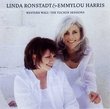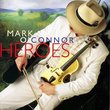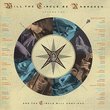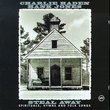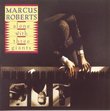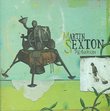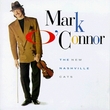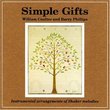| All Artists: Bill Frisell Title: Ghost Town Members Wishing: 1 Total Copies: 0 Label: Nonesuch Original Release Date: 3/7/2000 Release Date: 3/7/2000 Genres: Jazz, Pop Styles: Jazz Fusion, Modern Postbebop Number of Discs: 1 SwapaCD Credits: 1 UPCs: 075597958324, 755979583244, 075597990355 |
Search - Bill Frisell :: Ghost Town
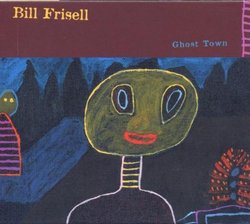 | Bill Frisell Ghost Town Genres: Jazz, Pop
No matter what the context--and there have been scores of them--Bill Frisell has sounded like he's on one long, constant solo more than any other guitarist in jazz. His playing is singular enough, though, that it always st... more » |
Larger Image |
CD DetailsSynopsis
Amazon.com No matter what the context--and there have been scores of them--Bill Frisell has sounded like he's on one long, constant solo more than any other guitarist in jazz. His playing is singular enough, though, that it always stands way out in a good way, both calling attention to and deflecting attention from itself. With Ghost Town, Frisell is alone--at least in theory. It's definitely a solo outing, but Frisell doubles and triples up with samples and loops, sounding like a virtual ensemble in places. As on Good Dog, Happy Man, Frisell layers differing elements to create a swimming sound that swirls while staying down-home. But the sounds of Ghost Town are alternately more fragile and more challenging than Good Dog, eschewing the regularity of plotted rhythms for the waft of a melody or particular improvisational train of thought. With nods to Hank Williams ("I'm So Lonesome I Could Cry"), The Carter Family ("Wildwood Flower"), and "The Far Side" creator Gary Larson, Frisell explores new ground but never loses sight of the trail he's pioneered between jazz and folksy roots music. --Andrew Bartlett Similarly Requested CDs
|
CD ReviewsBrilliant (Unsurprisingly) Richard Thurston | Seattle, WA | 03/23/2000 (5 out of 5 stars) "Criticism of this most latest effort from Bill Frisell seems tofocus on what the cd is not.Agreed:This is absolutely not BadMehldau.Nor is it Wes Montgomery or Joe Pass.And it isn't 'jazz' in the very narrow sense of where one might find a Barney Kessell record.So what?I believe that the defining characteristic(s) of a great musician have to do with possessing a unique sound and an ability and willingness to communicate an original musical vision.And Frisell is a unquestionably a unique and highly gifted performer. He is a great musican and artist. Well grounded in idioms as diverse as bop, country, pop, free improv and bluegrass Frisell has created a synthesis of those (and other) forms which is completely his own.Recognizable from the first note, this cd plays very much like one of his solo concerts though augmented by studio overdubs. Deceptively simple, the attention to melody, the rich and often unexpected harmonics and the spare, thoughtful improvisations all work to create very wonderful music.A particular highlight for me is the medley 'Ghost Town/Poem for Eva'. Lovely melodies, elegantly conveyed. Think of 'Poem for Eva' as the best tune the Everly Brothers failed to write.Bill Frisell compiled one of the very best bodies of recorded work during the 1990's. This begins the 2000's at the same high level." Another fine Frisell album. Moving further toward acoustic. N. Caine | 03/08/2000 (4 out of 5 stars) "Here's another fine Bill Frisell effort which surpasses, I think, the Costello/Bacharach or "Good Dog Happy Man" albums. Frisell continues exploring minimalism here, and he moves further away from the sweeping, chorused electric sounds which characterized his early 90's work. This record focuses more on the acoustic sound which began to creep in with the Buster Keaton albums. What really makes it go are fine melodies within most of the tracks and an adventurous, musical spirit which one can feel (and hear) in the music." Probably the best of his recent albums N. Caine | Los Angeles, CA | 10/15/2004 (5 out of 5 stars) "All these sycophantic 5 star reviews of all of Frisell's albums is getting tiresome. I own them all and count myself a serious, engaged fan of Frisell's. I listen to the music seriously and ambiently as well. He's a guy who seems unable to make up his mind whether he wants to be a legendary session player, adding his trademark guitar sound and riffs to collaborations, or whether he wants to fulfill some of his earlier promise as a true innovator and potential guitar genius. Guys like Mark O'Connor have managed to accomplish both, albeit on a different instrument, but Frisell seems to me to be absolutely in the first camp, that of session performer. But let's not overpraise someone with a fairly consistent sound and some nice chops all too rarely shown off. A few years ago, Frisell looked ready to unleash his genius and soul, such as on his wild solo on "East Timor" on Ginger Baker's "Unseen Rain" (which holds up nicely). But instead of moving forward, he settled into Joey Baron Zorn-influenced jazz sessions that are largely unremarkable. Frankly, I find the material no better than John Abercrombie's work. Then Frisell looked like he was going to break out in a new genre, the kind of New Grass jazz material pioneered by O'Connor and Edgar Meyer (recommended: Skip Hop and Wobble), which Yo Yo Ma got on their train with on his successful Appalachian Journey, and Frisell put out his superb "Nashville." Again, he didn't go anywhere with it by himself, and he has churned out variations on it in various session recordings. Yet again he settles into session playing which I find unambitious and, to be frank, often soulless. I find it to be great shame, since that solo on "East Timor" shows the guy can draw on something inside that goes beyond the safe zone he so often inhabits.
That said, Ghost Town is to me by far his most successful and consistent albums from Nashville through 2004 (when I'm writing now). Before you mark my review as unhelpful because I have criticized a purported guitar god, I am truly trying to be helpful by suggesting this cd over Blues Dream or Good Dog Happy Man or Intercontinentals or Unspeakable, for those who are not big fans but would like to pick up another Frisell since Nashville." |

 Track Listings (16) - Disc #1
Track Listings (16) - Disc #1